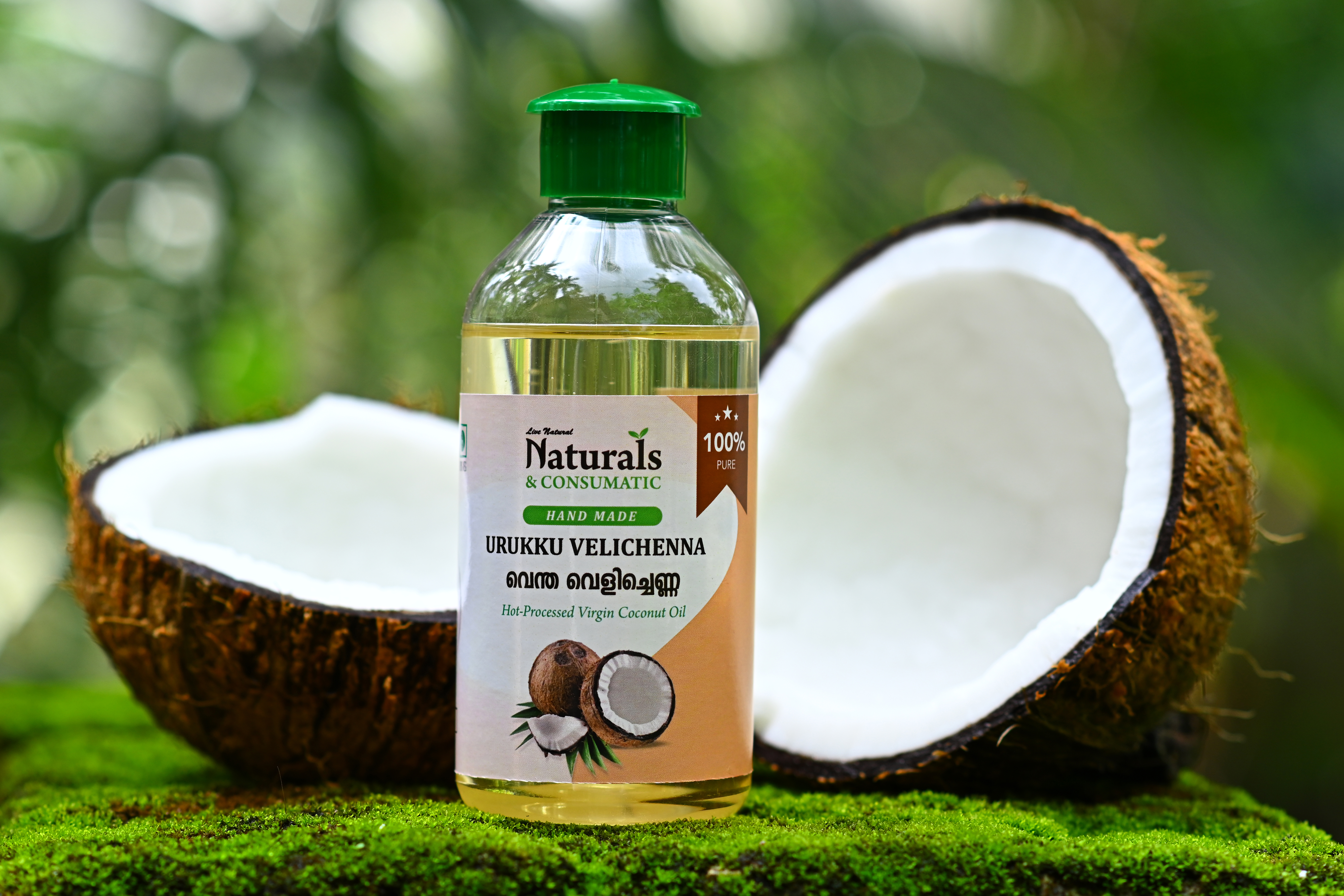Coconut oil has gained significant attention in recent years, especially for its potential benefits for the brain.
While it’s widely known as a cooking oil and skin moisturizer, research also suggests that coconut oil could support cognitive function and protect brain health.
The primary keyword here is “benefits of coconut oil for brain health.”
In this article, we’ll delve into the science behind coconut oil’s brain-boosting effects and how you can incorporate it into your diet.
Key Components for Brain Health
Coconut oil is distinct from other oils due to its unique composition of fatty acids.
Here’s what makes it especially beneficial for brain health:
1. Medium-Chain Triglycerides (MCTs)
Coconut oil contains a high concentration of MCTs, including lauric acid and caprylic acid.
Unlike long-chain fats, MCTs are more easily absorbed and quickly metabolized by the liver.
This process produces ketones, an alternative energy source for the brain.
Ketones can be especially helpful for brain cells that may struggle to absorb glucose, the brain’s main fuel source.
This benefit is particularly relevant in the context of age-related cognitive decline.

2. Antioxidant Properties
Coconut oil contains antioxidants that help protect the brain from oxidative stress, a major contributor to brain aging and neurodegenerative diseases like Alzheimer’s.
The presence of antioxidants helps neutralize harmful free radicals, which can damage brain cells over time.
3. Anti-inflammatory Effects
Chronic inflammation has been linked to various brain disorders, from depression to dementia.
The anti-inflammatory properties of coconut oil may support brain health by reducing inflammation and protecting neurons from damage.
This can be beneficial for people dealing with inflammatory conditions, including those that affect mental health.
Benefits of Coconut Oil for Brain Health
Each of the following benefits is structured with keyword-rich headings to enhance searchability.
1. Improves Cognitive Function
Studies indicate that ketones, produced by the liver when metabolizing MCTs in coconut oil, can improve cognitive function, particularly in people with mild memory problems or early-stage cognitive decline.
Ketones bypass damaged brain cells that are unable to absorb glucose effectively, providing an alternative source of energy.
This can lead to improvements in focus, memory, and overall mental clarity.
2. May Help Prevent Alzheimer’s Disease
Alzheimer’s disease is associated with insulin resistance in the brain, sometimes called “type 3 diabetes.” Because MCTs provide a non-glucose energy source, they can fuel brain cells that might otherwise be starving for energy.
Research suggests that coconut oil could offer potential benefits for Alzheimer’s patients by improving brain cell function and slowing disease progression.
3. Boosts Memory and Learning Abilities
Early studies suggest that MCTs may enhance memory retention and improve learning ability.
The rapid energy boost provided by ketones has been shown to positively affect the hippocampus, the brain’s center for memory.
Regular intake of coconut oil may, therefore, help support memory and learning, which are often compromised in neurodegenerative diseases.
4. Enhances Mental Clarity and Focus
Coconut oil’s ketone production can provide a quick and steady energy source to the brain, supporting concentration and focus.
People who incorporate coconut oil into their diet often report enhanced mental clarity and less mental fatigue throughout the day.
This benefit can be especially helpful for students and professionals who require prolonged focus.
5. Reduces Risk of Depression and Anxiety
The anti-inflammatory effects of coconut oil can potentially alleviate symptoms of depression and anxiety.
Chronic inflammation in the brain is linked to mood disorders, and by reducing inflammation, coconut oil may help stabilize mood and reduce anxiety.
Additionally, the oil’s MCTs provide the brain with consistent energy, which can help maintain stable mood and mental wellness.
6. Supports Brain Health in Aging
As we age, cognitive function naturally declines.
However, the regular use of coconut oil may help preserve brain health due to its combination of ketone production, antioxidant support, and anti-inflammatory properties.
The MCTs in coconut oil may slow down age-related cognitive decline, making it a valuable addition to the diet of older adults.
How to Use Coconut Oil for Brain Health
Incorporating coconut oil into your diet is simple, but here are some practical ways to make it part of your routine.
Using keywords like “how to take coconut oil for brain health” or “ways to consume coconut oil” will attract searchers looking for specific tips:
- Cooking: Use coconut oil as a substitute for butter or other oils in cooking. Its high smoke point makes it suitable for sautéing vegetables, cooking eggs, or even baking.
- Coffee or Tea: Add a teaspoon of coconut oil to your morning coffee or tea. The oil can give you an extra energy boost, ideal for mental clarity and focus.
- Smoothies: Blend a spoonful of coconut oil into your smoothie. This adds healthy fats to your drink and can help keep you full longer.
- Salad Dressing: Use melted coconut oil in your salad dressings for a mild, slightly sweet flavor that pairs well with various ingredients.
Including coconut oil consistently can help maintain ketone levels in the body, which is beneficial for long-term brain health.
Are There Any Risks or Side Effects?
While coconut oil offers numerous benefits, it’s essential to be aware of a few potential side effects:
- High Saturated Fat Content: Coconut oil is high in saturated fats, which can impact cholesterol levels if consumed in large amounts. Moderation is key, especially for those with high cholesterol or a history of heart disease.
- Digestive Upset: Some people may experience digestive discomfort when they first start consuming coconut oil. Start with small amounts to let your body adjust.
- Allergic Reactions: Though rare, some individuals may be allergic to coconut oil, so it’s advisable to perform a patch test before applying it to the skin or starting with a small quantity in food.



